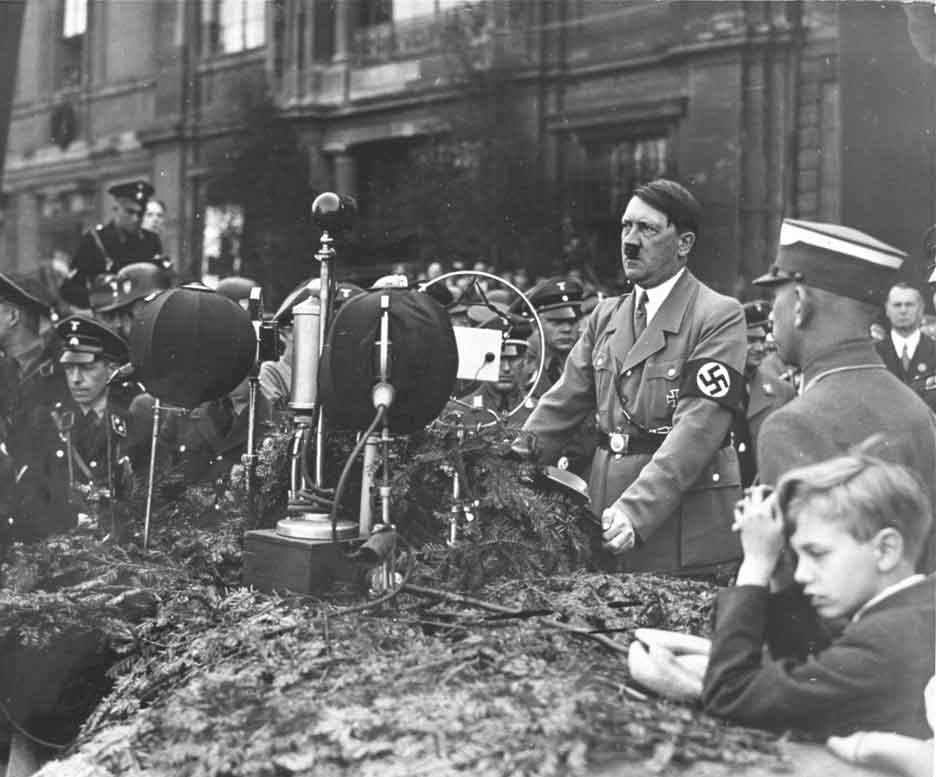Germany Abrogates Versailles Agreement
On March 16, 1935, Germany announced that the Germans had passed a new law called the Law for Re-Creation of the National Defense Forces. The law enacted universal service for all German males and created an army of 36 divisions. Hitler’s Germany thus abrogated the military provisions of the Versailles Agreement. There was a great deal of hand wringing in Paris and London, but the Allied powers did nothing.
Hitler's success in regaining the Saar whetted his appetite for additional foreign policy wins. To achieve that, he needed to increase the size of the German military. Until this time, German rearmament in violation of the Versaille treaty was done secretly. But understanding that this could not be done that way anymore, Hitler announced on March 16, 1935, the existence of the then-secret German Airforce and the reintroduction of conscription in the army.
Many Germans were thrilled by the decision. One wrote in his diary; 'the day that we have longed for since the disgrace of 1918. In the morning, France had its much fought over two-year military service in its pocket in the evening; we had general conscription as an answer.'
Not everyone was thrilled; many young people did not look forward to being forced to have an army experience. Others remembered the horrors of World War I. The International reaction was very mixed. The British, French, and Italian governments met in Stresa Italy and guaranteed Austria's continued independence. A week after the announcement, the League of Nations condemned the violation of the Versaille Agreement. In addition, France concluded a mutual defense agreement with the Soviet Union. None of this stopped the United Kingdom from signing an Anglo-German Naval Agreement on June 18, 1935, that permitted the German to build a navy that 1/3 the British's size. Under the accord, Germany was allowed to have parity with the British in submarines. It should be noted that under the Versaille Agreement, Germany had been forbidden from building any submarines.
 >
>